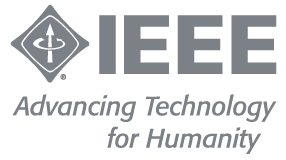Immigration laws and Visa procedures are depending on the country regulations. What are the basics you should know if you want to come to the U.S.?

In the U.S., we’re fortunate to have immigration laws that welcome highly-motivated foreign entrepreneurs, because immigration causes innovation. Want to come and stay in the U.S. to create or scale up your tech venture?
Several visas allow startup founders to do just that. The Alcorn Immigration Law website lists all visa options available to founders. Here are some of the basics about visas and applying for them, as well as an overview of some of the visas best suited for founders.
The Basics
At Alcorn Immigration Law, we educate our clients about the immigration process so they have peace of mind knowing that they have examined every possible strategy and left no stone unturned. Getting familiar with the terminology will help you navigate the process.Foreign nationals may petition for a visa by either:
- Applying outside the United States at a U.S. embassy or consulate in their home country, or
- Applying within the United States to U.S. Citizenship and Immigration Services (USCIS).
A valid visa enables an individual to enter and stay in the U.S. The U.S. offers two types of visas:
- Nonimmigrant visas enable foreign nationals to temporarily stay in the U.S. These visa holders must maintain a permanent residence outside the U.S. and satisfy U.S. government agents that their stay will end.
- Immigrant visas enable foreign nationals to stay indefinitely in the U.S. under a green card, also known as permanent residence.
Most of the visas listed below allow the visa holder’s spouse and dependent children to accompany them to the U.S. However, few visas allow for a spouse to apply for a work permit. Our clients find that scheduling a strategy session with our team is the best way to narrow down which options are best suited to their future goals.
B-1 Visa for Business Visitors
The B-1 nonimmigrant visa allows an individual to stay 6 months, with the option to extend for another 6 months. If the individual's home country has a treaty with the U.S., this visa may be valid for up to 10 years.The B-1 visa holder must not engage in “hands-on” employment or receive income from a U.S. source. However, with a B-1 visa, a founder may get ready to launch a startup, then switch to another nonimmigrant visa. Acceptable business activities under a B-1 visa include:
- Meeting with clients to demonstrate a prototype or discuss specifications of a product.
- Attending a business meeting.
- Finding office space or negotiating a lease.
- Participating in scientific or professional conferences or seminars.
- Conducting research.
L-1A Visa for Transferees
The L-1A nonimmigrant visa enables a foreign company to transfer an executive to an existing office in the U.S. or to set one up. To receive an L-1A visa, that employee must work at the company for at least a year before the transfer. Our clients find this is a great option if they are scaling up because it provides a relatively direct path to permanent residence in the U.S.A founder could start a business or company in her/his home country. After one year, the founder could apply for an L-1A visa to scale up her/his venture in the U.S. An L-1A visa holder may stay initially in the U.S. for 3 years—only 1 year if establishing a U.S. office. The visa may be extended for up to 2 years at a time for a maximum of 7 years. It’s possible to apply for an EB-1C green card after the U.S. company has been doing business for at least one year.
H-1B Visa for Specialty Occupations
The H-1B nonimmigrant visa enables an employer to sponsor an employee with at least a bachelor's degree and specialized knowledge to come temporarily to the U.S. Few people realize that it actually is possible for somebody with an H-1B from another company to switch to working at their own startup!Demand for H-1B visas far outstrips the supply. Of the 85,000 H-1B visas available, 20,000 are reserved for individuals at least a master’s degree from a U.S. university, and 6,800 for Chileans and Singaporeans. USCIS accepts petitions April 1-5 each year and then conducts a random lottery.
Adding to the uncertainty and cost of an H-1B, the sponsoring employer must obtain a labor certification from the U.S. Department of Labor stating that no qualified U.S. workers exist for the position. This process aims to ensure that the employment, wages and working conditions of U.S. workers employed in the same field are not adversely affected.
An H-1B enables an individual to stay initially up to three years. If the H-1B visa holder applies for a green card, USCIS will extend the visa a year at a time for up to 6 years. If you are truly committed to your startup and want to feel like you haven’t abandoned any immigration possibility, then trying your luck in the H-1B lottery will give you peace of mind.
E-2 Visa for Treaty Investors
If you’re able to make a personal investment of money or intellectual property into your own US company, then the the E-2 nonimmigrant visa might be for you. It enables an individual to live and work in the U.S. if the following applies:- A treaty exists between the U.S. and the individual's home country. The Department of State maintains a list of treaty countries (https://travel.state.gov/content/visas/en/fees/treaty.html). No treaty exists with China or India.
- The individual invests a substantial amount of capital to start a new business in the U.S. or fund an existing one.
- The individual directs or manages the business.
- The investor that own at least 50% of the business has the same home country as the E-2 visa candidate.
- The business has growth potential and will generate profits above what the E-2 visa holder and her/his family need to support themselves.
As long as the same conditions under which the U.S granted the visa remain, an E-2 visa can be extended indefinitely.
EB-2 NIW Startup Green Card
The EB-2 National Interest Waiver enables an employer to sponsor an employee with "exceptional ability" or an advanced degree in science, the arts, or business. Moreover, recent changes make qualifying for this visa much easier for entrepreneurs and other self-employed individuals, particularly startup founders working at a company in which they own equity. This is great for people who are getting traction and showing success and who can show that they are making America better.A National Interest Waiver eliminates the need for a U.S. employer to embark on the lengthy and expensive process of getting a labor certification if it can show that permanently employing the individual would greatly benefit the U.S. This makes it faster than a standard green card and enables you to become a permanent resident even if you own equity in your startup.
Sophie Alcorn, hello@alcorn.law
Article courtesy of Sophie Alcorn, founder of Alcorn Immigration Law, 2020 Top Immigration Law Firm for Startups in California. Sophie has been recognized as is one of the 10 best immigration lawyers in California, writes for TechCrunch, and hosts the podcast Immigration Law for Tech Startups.
This article is not legal advice.


















